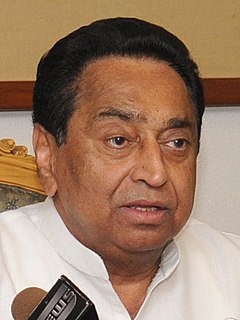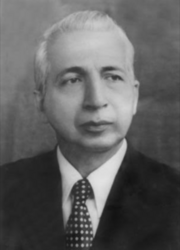Related Research Articles
The Khalistan movement is a Sikh separatist movement seeking to create a separate country called Khalistān in the Punjab region as a homeland for Sikhs. The proposed country would consist of both the Punjab, India along with Punjab, Pakistan and include parts of Khyber Pakhtunkhwa, Balochistan and Sindh in Pakistan; as well as Haryana, Himachal Pradesh and parts of Jammu and Kashmir, and Rajasthan in India. According to Jagjit Singh Chohan, Zulfikar Ali Bhutto the Prime Minister of Pakistan had proposed to make Nankana Sahib, as the capital of Khalistan during his talks with Chohan after the conclusion of the Indo-Pakistani War of 1971.
Religious persecution is the systematic mistreatment of an individual or a group of individuals as a response to their religious beliefs or affiliations or their lack thereof. The tendency of societies or groups within societies to alienate or repress different subcultures is a recurrent theme in human history. Moreover, because a person's religion often determines his or her morality, world view, self-image, attitudes towards others, and overall personal identity to a significant extent, religious differences can be significant cultural, personal, and social factors.
Persecution is the systematic mistreatment of an individual or group by another individual or group. The most common forms are religious persecution, racism and political persecution, though there is naturally some overlap between these terms. The inflicting of suffering, harassment, imprisonment, internment, fear, or pain are all factors that may establish persecution, but not all suffering will necessarily establish persecution. The suffering experienced by the victim must be sufficiently severe. The threshold level of severity has been a source of much debate.

Kamal Nath is an Indian politician and the 18th Chief Minister of Madhya Pradesh.

Jagdish Tytler is an Indian National Congress politician and former Member of Parliament. He has held several government positions, the last being as Minister of State for Overseas Indian Affairs, a post from which he resigned after publication of a report by an official commission of inquiry, known as the Nanavati Commission. The Commission had noted that he "very probably" had a hand in organising attacks on the Sikh community in Delhi after Sikh bodyguards assassinated the Prime Minister, Indira Gandhi, during the 1984 anti-Sikh riots. He has not been charged with any crimes related to those riots.
Hari Krishan Lal Bhagat was an Indian politician of the Congress party. Earlier he served as Deputy Mayor, Mayor of Delhi and as the chief whip of Delhi Pradesh Congress Committee (DPCC).

The insurgency in Punjab originated in the late 1970s, was a threat to the unity and integrity of India due to the militant Sikh ethno nationalism known as Khalistan movement. In the 1980s the movement had developed into a secessionist movement under the leadership of Jarnail Singh Bhindranwale. The Green revolution brought several socio-economic changes which along with factionalism of the politics in the Punjab state increased tension between a section of Sikhs in Punjab with the union Government of India. Pakistani strategists then began supporting the militant dimension of the Khalistan movement.
Human rights in India is an issue complicated by the country's large size and population, widespread poverty, lack of proper education, as well as its diverse culture, despite its status as the world's largest sovereign, secular, democratic republic. The Constitution of India provides for Fundamental rights, which include freedom of religion. Clauses also provide for freedom of speech, as well as separation of executive and judiciary and freedom of movement within the country and abroad. The country also has an independent judiciary and well as bodies to look into issues of human rights.
The American Association of Physicians of Indian Origin (AAPI) is a professional association for Indian American physicians.
The Godhra Train Burning was an incident that occurred on the morning of 27 February 2002, in which 58 Hindu pilgrims karsevaks returning from Ayodhya, were killed in a fire inside the Sabarmati Express train near the Godhra railway station in the Indian state of Gujarat .. The commission set up by the Government of Gujarat to investigate the train burning spent 6 years going over the details of the case, and concluded that the fire was arson committed by a mob of 1,000 to 2,000 people. A commission appointed by the central government, whose appointment was later held to be unconstitutional, stated that the fire had been an accident. A court convicted a group of 31 individuals for the incident and the conspiracy for the crime. The conviction was later upheld by the Gujarat High Court.

The 2002 Gujarat riots, also known as the 2002 Gujarat violence and the Gujarat pogrom, was a three-day period of inter-communal violence in the western Indian state of Gujarat. Following the initial incident, there were further outbreaks of violence in Ahmedabad for three months; statewide, there were further outbreaks of violence against the minority Muslim population for the next year. The burning of a train in Godhra on 27 February 2002, which caused the deaths of 58 Hindu pilgrims karsevaks returning from Ayodhya, is cited as having instigated the violence.
Sajjan Kumar is an Indian politician. He was elected to the Lok Sabha, the lower house of the Parliament of India from Outer Delhi as a member of the Indian National Congress but resigned from the primary membership of the party after he was convicted and sentenced to life imprisonment in a case relating to the 1984 anti-Sikh riots.
Girish Thakorlal Nanavati is a retired judge from the Supreme Court of India. After his retirement he headed two commissions inquiring into the 1984 Anti-Sikh riots and the Godhra riots.

Ranganath Mishra was as the 21st Chief Justice of India, serving from 25 September 1990 to 24 November 1991. He was also the first chairman of the National Human Rights Commission of India. He also served as Member of Parliament in Rajya Sabha from the Congress Party between 1998-2004.

Harvinder Singh Phoolka, is a senior advocate of Delhi High Court, politician, human rights activist, and author. He served as the Leader of the Opposition in the Punjab Legislative Assembly. He is known for spearheading what is described as "one of the longest and most torturous legal battle" and "crusades" to gain justice for the victims of 1984 anti-Sikh pogroms and fighting individual cases on the involvement of Congress-I leaders H. K. L. Bhagat, Sajjan Kumar and Jagdish Tytler despite the government cover-up. He received threatening letters for unearthing involvements of ruling political party leaders in what the Asian Age called "the Mother of all Cover-ups" in a front-page story. The special anniversary edition of the Outlook included Phoolka in its list of 50 people that make a difference in India, alongside Amartya Sen and Abhinav Ghosh. He unsuccessfully contested 2014 Lok Sabha Polls as an AAP Candidate from Ludhiana. In 2017 he successfully contested from Dakha assembly Constituency, but resigned on 12 October 2018 over alleged failure of Congress government in acting on Ranjit Singh commission's inquiry report on desecration of Guru Granth Sahib Ji. However his resignation was accepted by speaker after nearly 10 months on 9 August 2019.

The 1984 anti-Sikh riots, also known as the 1984 Sikh Massacre, was a series of organised pogroms against Sikhs in India in response to the assassination of Indira Gandhi by her Sikh bodyguards. The ruling Indian National Congress had been in active complicity with the mob, as to the organisation of the riots. Government estimates project that about 2,800 Sikhs were killed in Delhi and 3,350 nationwide, whilst independent sources estimate the number of deaths at about 8,000–17,000
The Hondh-Chillar massacre refers to the killings of at least 32 Sikhs on 2 November 1984 in a village in the Rewari district of Haryana, allegedly by Hindu mobs during the 1984 anti-Sikh riots. The local police did not intervene in the massacre, pursue a First information report filed by survivors or help resettle the survivors. The mass graves at the massacre were rediscovered in January 2011. A similar massacre occurred in nearby Pataudi.
Sanjiv Bhatt is a former Indian Police Service officer from Gujarat. He is known for his role in filing an affidavit in the Supreme Court of India against the then Chief Minister of the Government of Gujarat, Narendra Modi, concerning Modi's alleged role in the 2002 Gujarat riots. He claimed to have attended a meeting, during which Modi allegedly asked top police officials to let Hindus vent out their anger against the Muslims. However, the Special Investigation Team appointed by the Supreme Court of India concluded that Bhatt did not attend this meeting, and dismissed his allegations.

The Bhagalpur riots of 1989 refers to the violence between the Hindus and the Muslims in the Bhagalpur district of Bihar, India. The riots started on 24 October 1989, and the violent incidents continued to happen for 2 months. The violence affected the Bhagalpur city and 250 villages around it. Over 1,000 people, were killed, and another 50,000 were displaced as a result of the violence. It was the worst Hindu-Muslim violence in independent India at the time, surpassing the 1969 Gujarat riots.
The Nanavati-Mehta Commission is the commission of inquiry appointed by the government of Gujarat to probe the Godhra train burning incident of 27 February 2002. Its mandate was later enlarged to include the investigation of the 2002 Gujarat riots. It was appointed on 6 March 2002, with K. G. Shah, a retired Gujarat High Court judge, as its only member. It was later re-constituted to include G. T. Nanavati, a retired judge of the Supreme Court of India, after protests from human rights organizations over Shah's closeness to then-Gujarat Chief Minister Narendra Modi. Akshay H. Mehta, retired judge of the Gujarat High Court, replaced Shah when the latter died before the submission of the Commission's interim report. Mehta was the same judge who had granted bail to Babu Bajrangi, the main accused of the Naroda Patiya massacre.
References
- 1 2 Nanavati, G T (2005). "JUSTICE NANAVATI COMMISSION OF INQUIRY (1984 ANTI-SIKH RIOTS)REPORT Volume 1" (PDF). N Delhi: MHA. Retrieved 18 May 2016.
- 1 2 Nanavati, GT (2005). "JUSTICE NANAVATI COMMISSION OF INQUIRY (1984 ANTI-SIKH RIOTS) REPORT VOLUME – II (ANNEXURES)" (Annexures). New Delhi: MHA. Retrieved 20 May 2016.
Commission of Inquiry for the purpose of making an inquiry into 'killing of innocent Sikhs', constituted in New Delhi,on 8 May, 2000
- ↑ Nanavati anti-Sikh riots report submitted Rediff - 9 February 2005
- ↑ Credible evidence against Tytler: Nanavati The Hindu - 9 August 2005
- ↑ Nanavati Commission report on 1984 anti-Sikh riots submitted The Hindu - 10 February 2005
- ↑ Indian politicians clash over report on anti-Sikh riots CBC - 9 August 2005
- ↑ Fear of truth The Pioneer - 22 April 2005